Benefits of Supply Chain Management
Create an ideal manufacturing mix from discrete, lean, and process in a single, unified solution to support processes across the supply chain.
Optimize manufacturing parameters for each product family, including make to stock, make to order, pull to order, configure to order, and engineer to order.
Streamline scheduling with real-time visibility into resources by using a unified resource model and scheduling engine by using the Financial management module in Supply Chain Management.
Optimize the flow of manufacturing material and finished goods with advanced warehouse and logistics management.
Improve product quality by identifying and resolving issues through real-time insights and predictive intelligence.
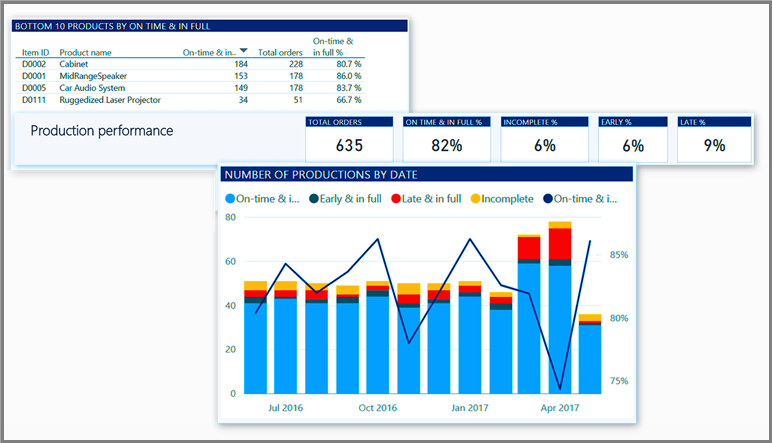
Automate and streamline your supply chain
Supply Chain Management helps organizations optimize fulfillment and reduce costs by synchronizing logistics across sites, warehouses, and transportation modes. Additionally, it enables organizations to provide faster response to customer demand by automating a seamless coordination of an order-to-cash processes.
Throughout the operations, Supply Chain Management provides visibility and control across all sites and warehouses for proactive response to issues by using financial analysis capabilities.
By unifying processes from sales to fulfillment, Supply Chain Management seamlessly connects sales and purchasing with logistics, production, and warehouse management for a 360-degree view of an organization’s supply chain. It reduces procurement costs and gains greater control by automating procure-to-pay processes.
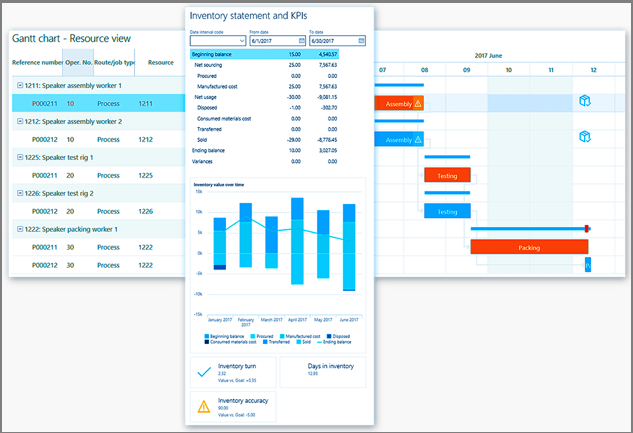
Overview of Supply Chain Management
Role-based security in Supply Chain Management and Dynamics 365 Finance helps keep financial and operational data secure.
Below are the responsibilities of operational leaders.
Increase operational efficiency - Trying to accelerate the speed and accuracy of the business operations with streamlined processes that effectively coordinate people, assets, and resources to reduce costs, improve service levels, and drive growth.
In Finance, the Fixed assets module controls the assets in the supply chain by integrating with the Inventory management module in Supply Chain Management.
The Human resources module in Finance, and Organization administration modules control resources such as people, machines, and vendors.
Improve strategic planning – The Master planning and Inventory management modules assist companies in improving strategic planning by providing a unified view of inventory, warehouse, manufacturing, service, and logistics with predictive analytics that turn data into insights to support better strategic decisions.
Optimize workforce productivity - Providing a single source of business intelligence that drives productivity from assets and resources, aligns employees toward strategic goals, and enables real-time response to organizational and customer demands.
Supply Chain Management offers tools and features with built-in intelligent controls such as charts, Key Performance Indicators (KPIs), and workspaces to optimize workforce productivity.
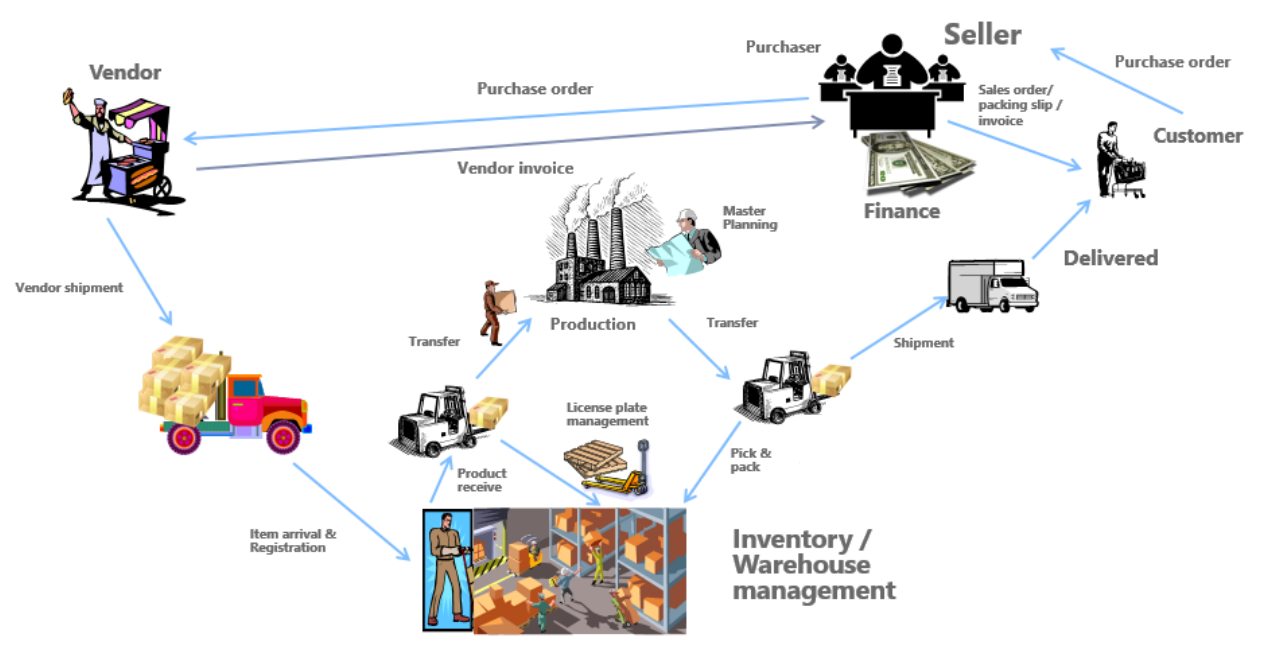
All incoming and outgoing funds will be recorded in the General ledger in Finance, and each bank has a corresponding account in the chart of accounts. This eases the reconciliation of bank statements with financial management transactions in periodic processing.
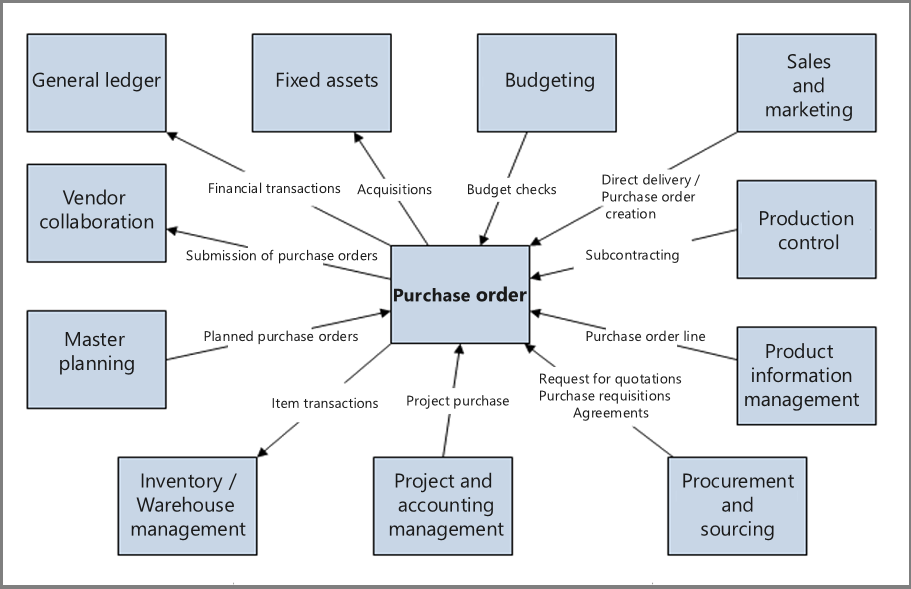
By using the Procurement and sourcing module in Supply Chain Management, you can perform all purchases, negotiate and create purchase agreements that are specific to a vendor, manage purchase orders with or without change management, approve workflow, and more.
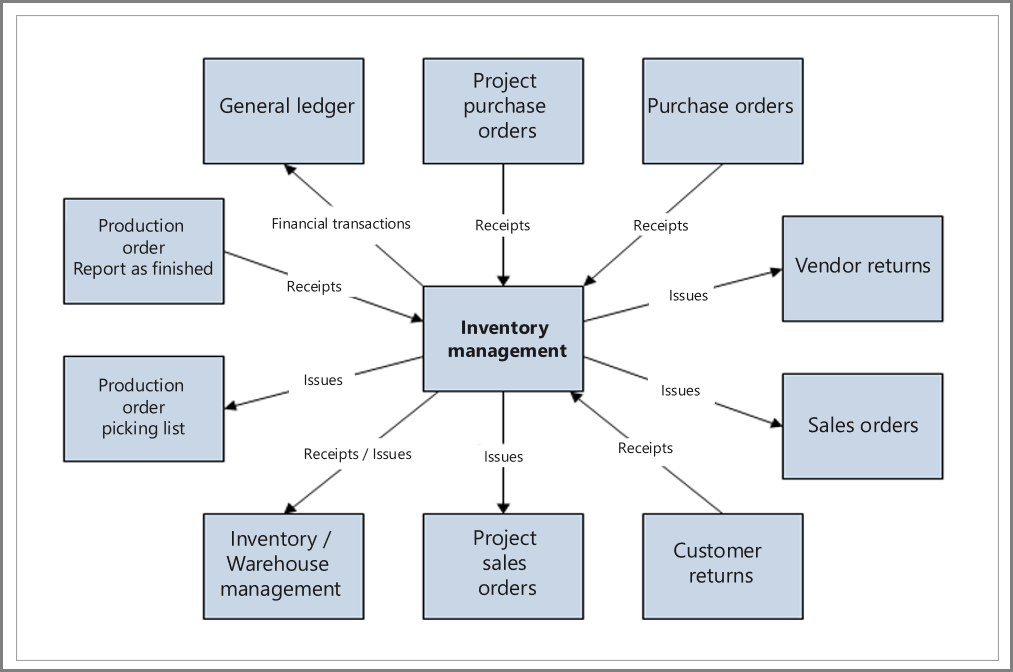
You can control the items in a warehouse location and handle their movement in the supply chain. Operations such as counting, transfer, quarantine, and quality controls are easily managed by using the Inventory management and Warehouse management modules.
All sales orders, negotiating and creating sales agreements that are specific to a customer, and managing return orders are performed by using the Sales and marketing module.
The Transportation management module can help you to find routes for delivering goods to your customers by using software to calculate costs and identify the best route based on the cost or time of delivery.
The next units take a closer look at each of these modules.
The above content is taken from : https://docs.microsoft.com/


No comments:
Post a Comment